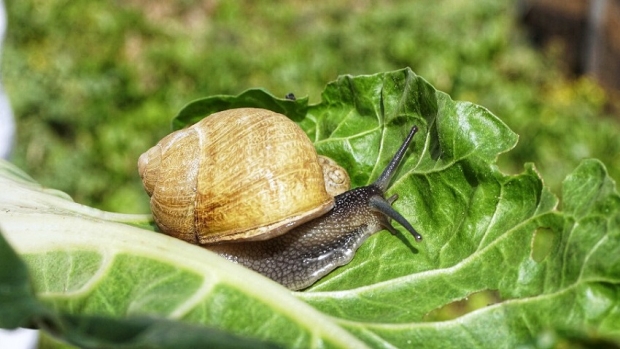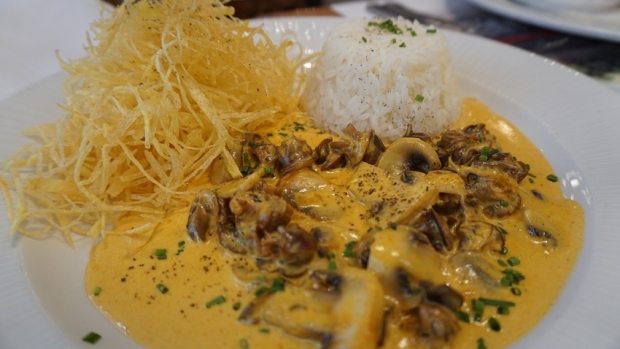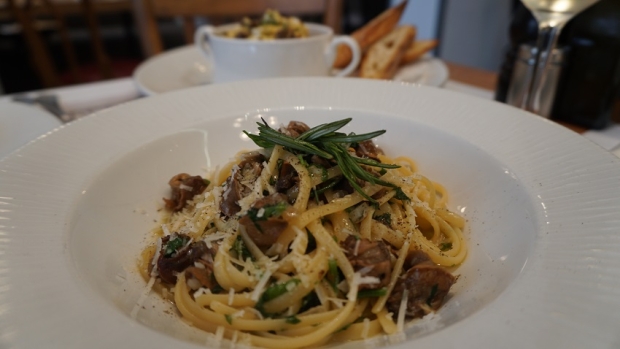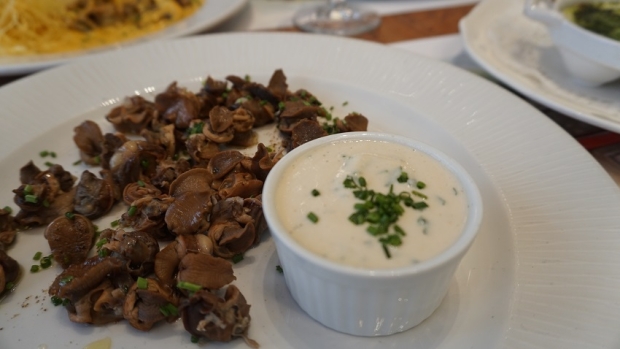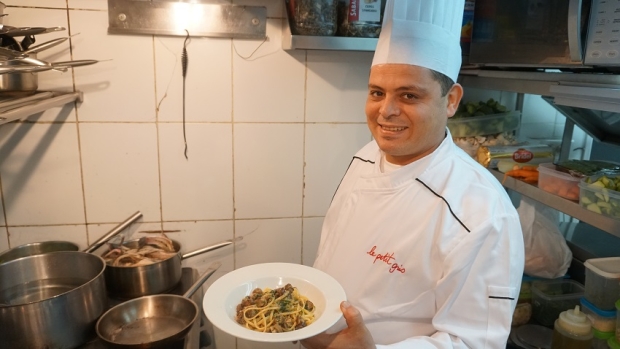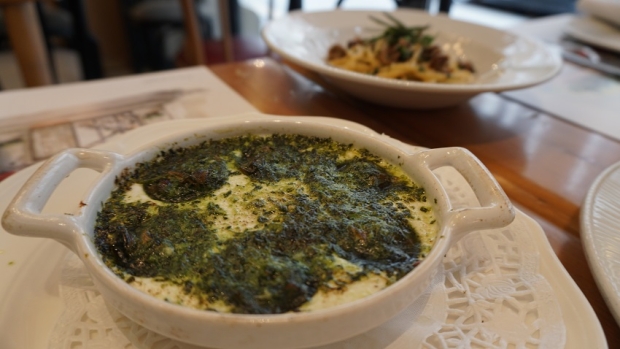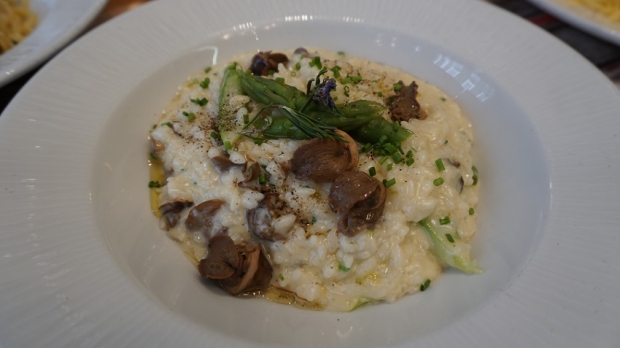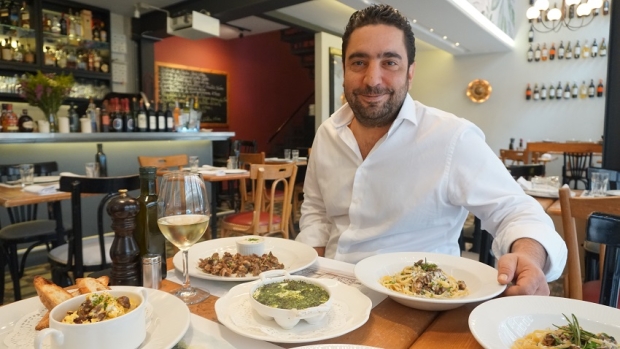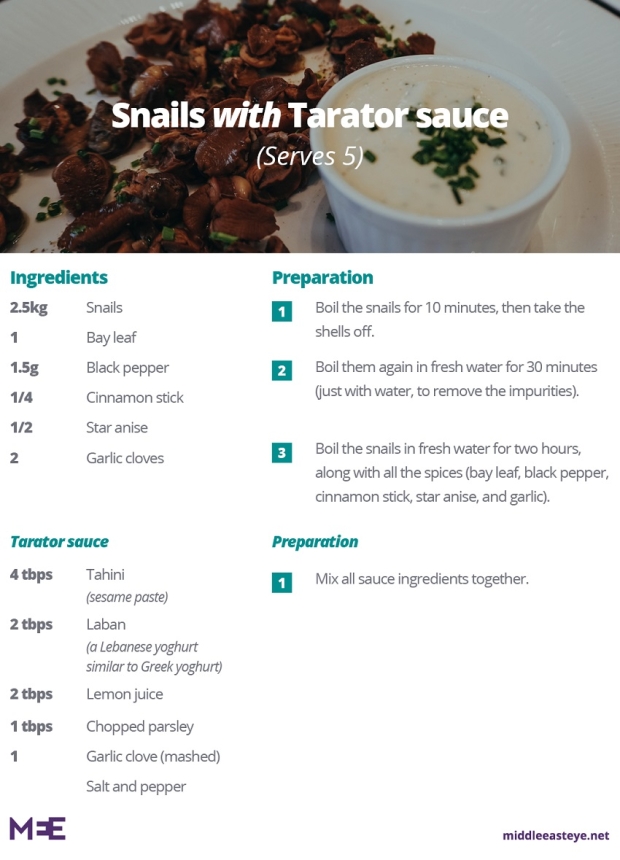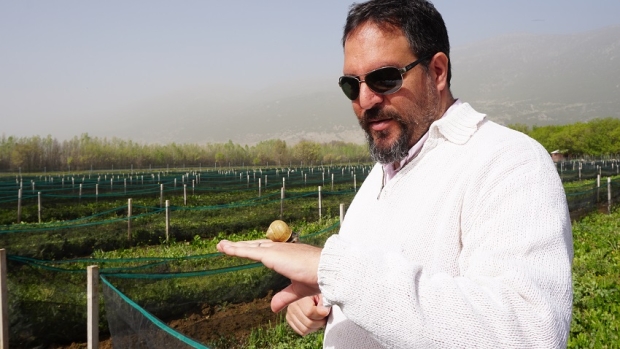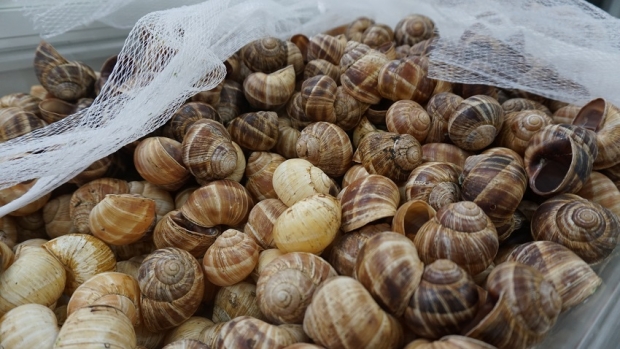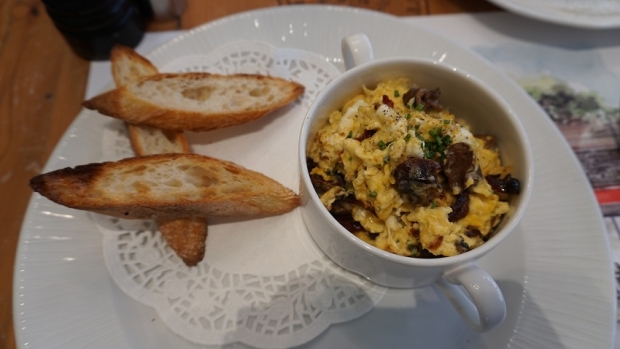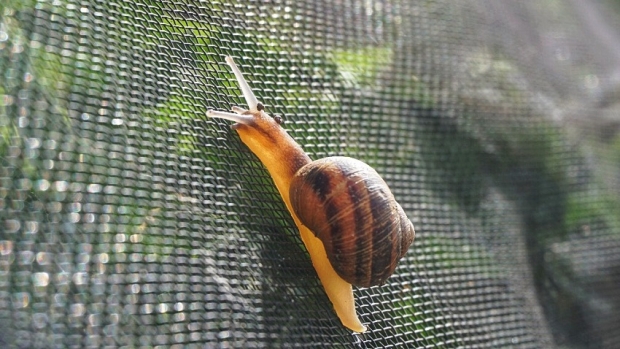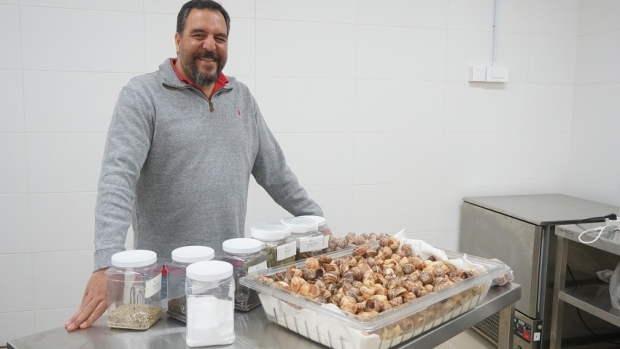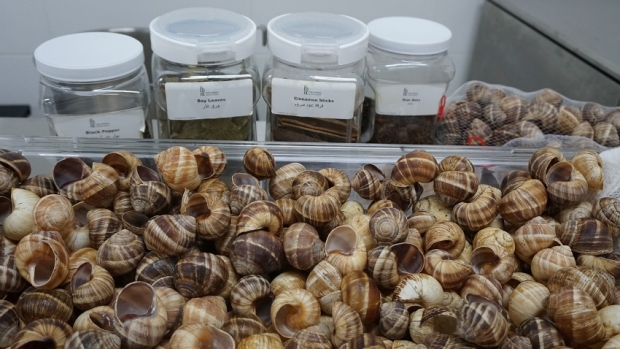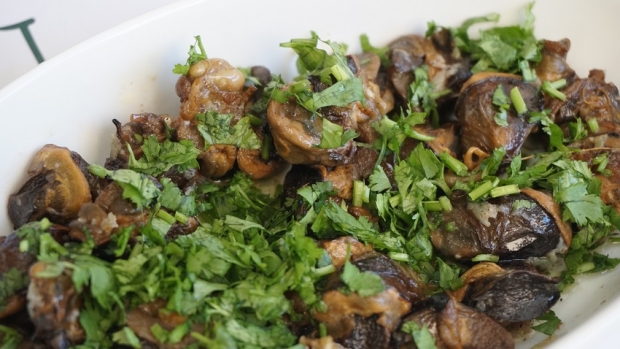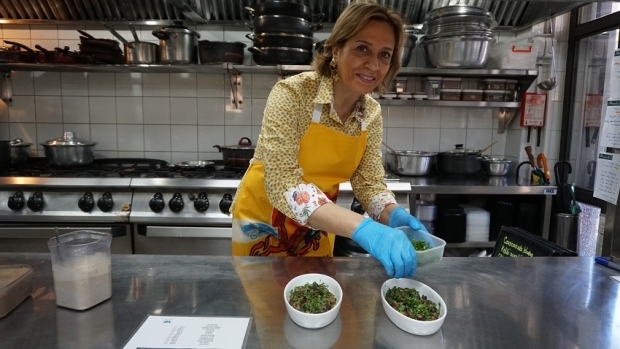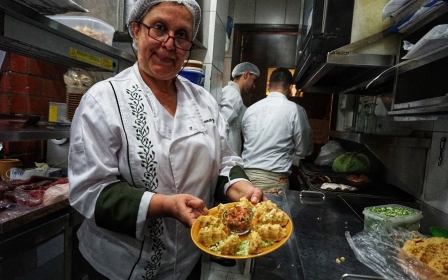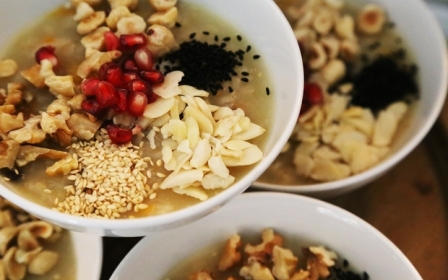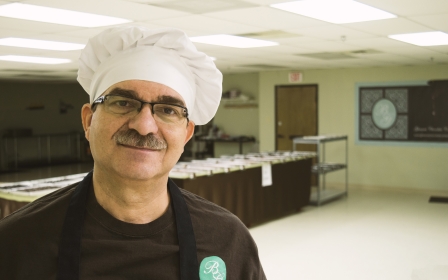Snails and tahini: Lebanon's best kept culinary secret
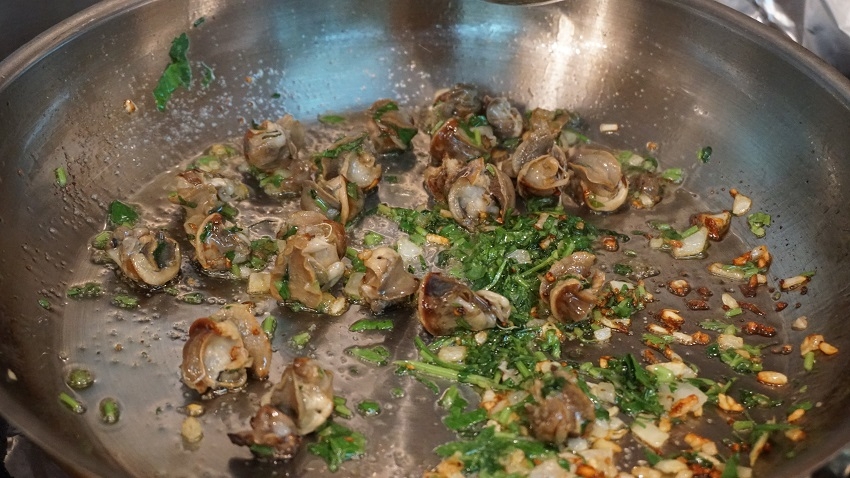
BEIRUT - Makram Rabbath’s eyes twinkle as he gushes about one of Lebanon’s best-kept culinary secrets.
“As a child, I would wait impatiently for my grandmother to pick snails in her garden and cook them for me the traditional way, with a tarator sauce (a tahini-based sauce),” he recalls.
His Beirut restaurant, Le Petit Gris – the French name for the common garden snail – is dedicated to gastropods, which are central to an age-old Lebanese tradition. Snails are usually picked from the gardens between September and November.
“They boil them several times with different spices like cinnamon or bay leaves. Then they eat them by simply dipping them in a tarator sauce,” he says.
The restaurant’s chef, Chadi Hreiz, serves the traditional dish known in Arabic as bzeh ma' tarator or snails with tarator, but also offers other snail dishes: the French way - with garlic and herbs (a la bourguignonne); as well as with a creamy mushroom sauce (a la stroganoff); or made with scrambled eggs; or blue cheese or rosemary with linguine; and an asparagus risotto.
'Pure protein'
In Lebanon, snails are commonly served either with tarator or a la bourguignonne, a recipe imported from France, where snails are cooked with butter, shallots, garlic and parsley.
“People are afraid of tasting snails because they associate it with its slimy texture,” says Rabbath, “but it’s the opposite. The meat is firm. It’s pure protein.”
He buys his yearly stock of wild snails, which amounts to one tonne, from seasonal workers in southern Lebanon, who traditionally pick them from under olive and orange trees during the rainy months of the year and sell them on the street. Cooked in his kitchen and frozen, Rabbath’s snails last until the following year.
Entrepreneur Rami Salman estimates that the street vendors sell around 40 tonnes of snails to locals during snail season.
Snails are also a popular street food in Morocco, but they are cooked with different local spices, including aniseed, liquorice root, thyme, sweet and spicy pepper, mint, bitter orange peel, and crushed gum arabic."Snails are popular in North African countries, especially Morocco, where they cook them in a sort of tomato stew," Salman tells Middle East Eye.
The dreary and seemingly uncompassionate cooking process of snails and snail farming has been deemed cruel by animal rights organisations such as PETA. Snails must be purged of anything unhealthy they may have eaten and they are sometimes left to starve for up to a week or more to ensure their digestive tracts are clean.
Rabbath says that his whole staff (of around 20 ) at Le Petit Gris works for an entire week to de-shell and cook the snails he buys.
They are then stored in low temperatures in a refrigerator to slow their nervous processes and ensure they are in a state of hibernation when they are dropped alive in a boiling pot.
“It’s important for them [to be] in boiling water, so that they are killed immediately. If you put a snail in room temperature water, it won’t die, it will wake up. Then it will start producing slime as a defence mechanism," Salman explains.
A strong demand
Salman believes that snails should be served fresh year round. In 2015, he teamed up with Naufal Daou, a journalist, aspiring politician and general manager of Lebanese Treasure Lands, which runs several snail farms, to help him launch one of the first snail farms in the Bekaa Valley.
According to the 2017 report by the Lebanese University, snail farming was introduced in Lebanon four years ago.
According to Salman, it's very difficult to estimate how many snails are consumed locally, because the majority of residents either pick the snails from their own gardens or buy them from the street vendors between September and November.
At first, Salman and Daou worked closely with the Istituto Internazionale di Elicicoltura, an international snail breeding institute in Cherasco, Italy.
According to Salman, on average, one kilo of snails is sold for around 7,000 Lebanese pounds (around $4) a kilo in the local market. To export, farmers have to factor in shipping expenses, insurance, and the snails’ lifespan, in addition to competing with set prices in Europe, which are much lower than the local market, Salman added. That brings down the selling price to 4,500 Lebanese pounds a kilo ($3), according to Salman.
Snail farming is not a cheap enterprise. Salman invested $250,000 in his 20,000 square metre farm in the first two years of operation (2015-2016) and hopes to break even this year.
All year long
On his farm, there are roughly two million snails living off a mixture of swiss chard, cabbage and carrots.
Salman installed a dehumidifier, as high levels of humidity wake up the snails, which are stored in the kitchen’s fridges in an artificial hibernation state - at between three and four degrees Celsius - to facilitate the cooking process.
The snails can typically live for up to several months in hibernation. In this way, they can be cooked fresh depending on demand.
In addition to targeting restaurants, Salman is planning on selling his products to prominent supermarkets. He also hopes to offer snail slime to pharmaceutical companies.
“Snail slime, known for its high concentration in collagen, is used as an additive to face and body creams. Cosmetics are particularly popular with Lebanese women, so that kind of product could work here,” explains Salman. In recent years, there has been a growing interest in slime-based beauty products, especially in Italy and South Korea.
A local start-up incubator, Berytech, is organising a hackathon in a few weeks and Salman has already pitched the idea of a slime extraction machine. He is looking for students who would be able to engineer it.
“A new ozone-based machine has also been developed in Italy, but its estimated cost runs in the tens of thousands of dollars. We’ll see what the Lebanese students come up with,” says Salman.
Alternative uses and high costs
So far, Salman provides 20 restaurants with snails, either cooked or frozen, and delivers them to their doorsteps every week. But according to Salman, many Lebanese restaurants remain reluctant to buy snails out of season, especially as they cost a few cents more per piece than the imported canned ones.
Several adventurous restaurants in Beirut have been testing his products since he opened his kitchen. Samia Massoud, owner of Mum & I, heats up a pack of snail fillets with butter, garlic, coriander, salt, and white and black pepper. “Some clients have already called this morning to order snails for lunch. They specifically asked for them to be cooked a la bourguignonne. I also make it the Lebanese way, with tarator sauce, and I’m thinking of serving them in tarts,” she says.
“The local demand exists. One restaurant owner told me that people start calling her asking for snails as soon as it starts raining. They just have to realise that snails can be eaten any time,” says Salman
New MEE newsletter: Jerusalem Dispatch
Sign up to get the latest insights and analysis on Israel-Palestine, alongside Turkey Unpacked and other MEE newsletters
Middle East Eye delivers independent and unrivalled coverage and analysis of the Middle East, North Africa and beyond. To learn more about republishing this content and the associated fees, please fill out this form. More about MEE can be found here.


